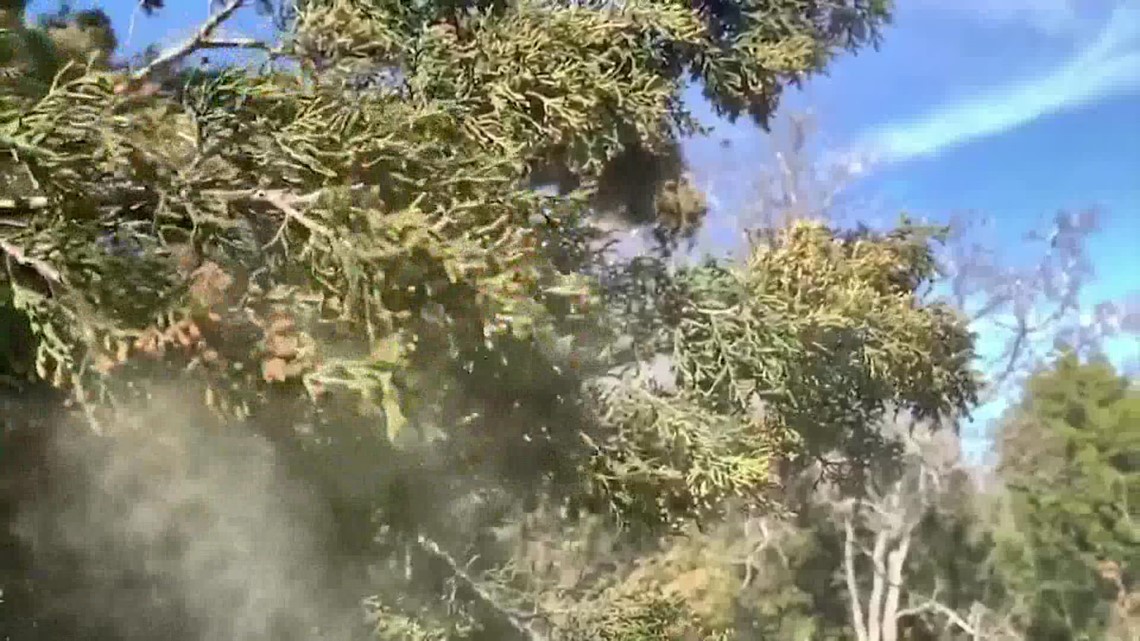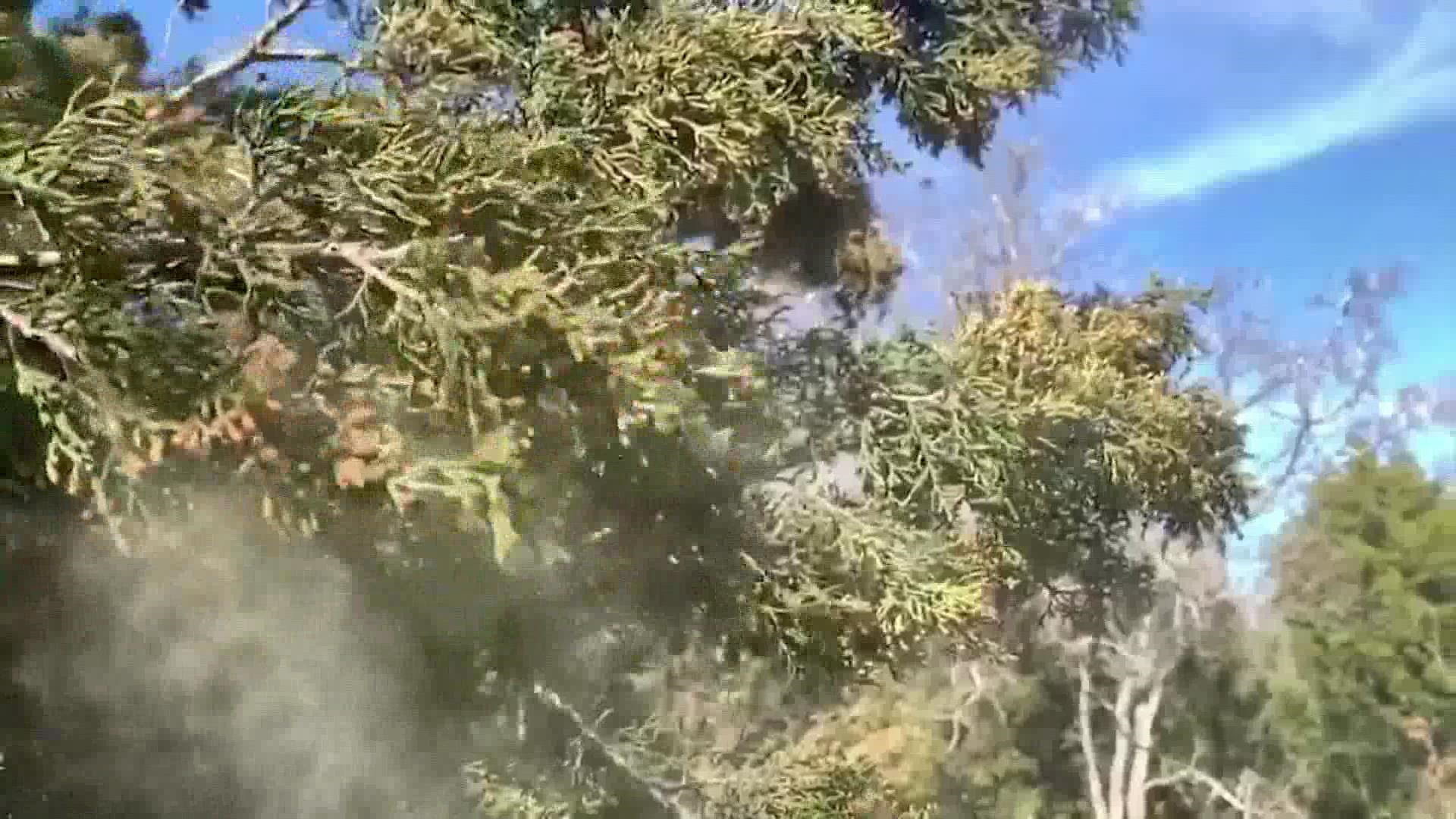HOUSTON — If you've been sneezing and sniffling, you're not alone. It's the time of year when Texans need to stockpile tissues and chicken soup.
While a runny nose is a common symptom of the omicron variant of COVID-19, it could also be cedar fever.
What is cedar fever?
Cedar fever isn't a flu or virus. It's an allergic reaction to pollen released by various cedar trees.
Experts at Texas A&M University say the winter months are when cedar trees release massive amounts of pollen that can even affect people without allergies.
“There’s just so much pollen in the air, it absolutely overwhelms the immune system,” Robert Edmonson, a biologist for the Texas A&M Forest Service, said. “It’s like trying to breathe in a dust storm.”
It's usually worse after a cold front when the air dries out and juniper trees release clouds of pollen.
“Under those conditions, every single pollen cone on a juniper tree will open at one time, and it looks like the trees are on fire. It looks like there’s smoke coming off of them," Edmondson said.


Allergies, a cold or COVID-19?
People often mistake cedar fever for a cold, the flu or even COVID since they have similar symptoms.
According to Healthline, cedar fever symptoms might include:
- Fatigue
- Sore throat
- Runny nose
- Partial loss of taste and smell
- Mild fever
Sound familiar? It's probably because those same symptoms can be caused by COVID.
How do you tell the difference?
There are some common signs that it's probably just allergies, according to TAMU.
- Itchy, watery eyes
- Blocked nasal passages
- And cedar pollen rarely causes fever over 101.5.
And if you're coughing and blowing your nose?
“If your mucus is running clear, then it’s an allergy," Edmonson advises. "If it’s got color, then it’s probably a cold or the flu.”
That's when you should see probably see your doctor.
Like most allergies, you can treat cedar fever with antihistamines, but check with your doctor before taking new medications.
Preventing cedar fever
- You can check daily pollen counts on this City of Houston website.
- On days when it's high, keep winds and doors closed and try to limit your time outdoors.
- Change your air conditioner filters frequently.

